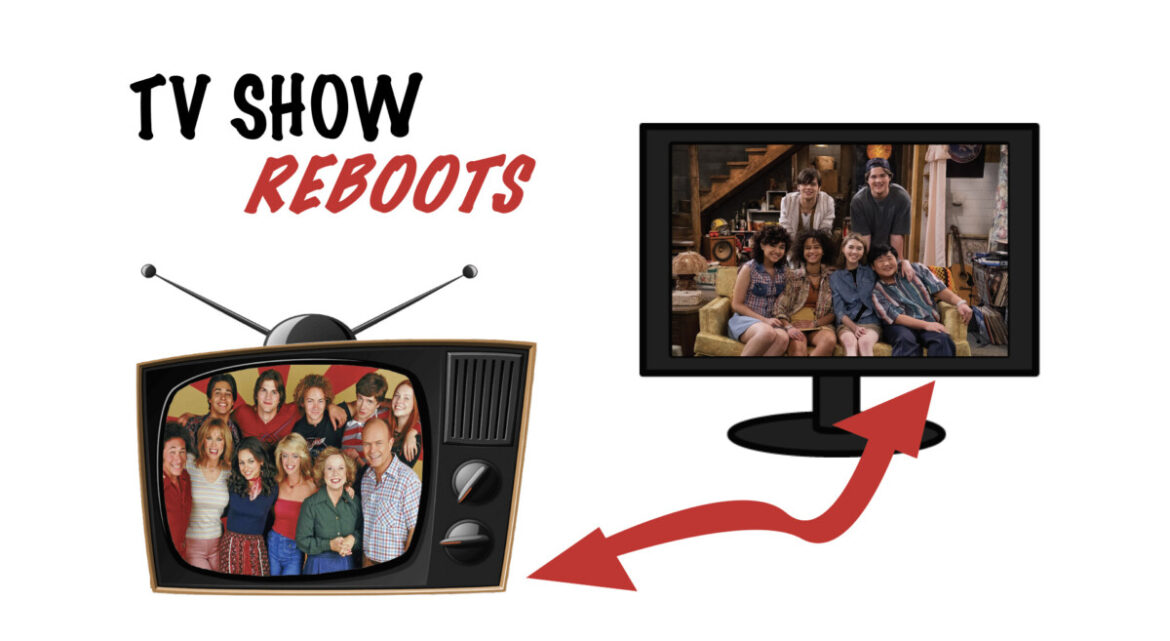Izzy Appelt, News Editor
@IzzyAcourant
Nothing is more disappointing than the lost feeling of finishing your newest go-to binge-watch show. I have gotten to the point where I scroll through Netflix and Hulu, searching for something I have not watched yet, and it usually takes a while to find something worth starting. Nowadays, almost every classic teenage show is getting rebooted in an effort to keep teens from moving on from their traditional streaming services.
Starting with the Full House reboot into Full-er House in 2016, the trend of reviving old teen sitcoms has become increasingly popular. The 2010s How I met your mother is now How I met your Father. The That 70s shows reboot–That 90s show– can also now be found on Netflix, and the worst of all, the Gossip Girl reboot. But the problem with these reboots is that many of them don’t do the trick of recreating that same old-time feeling.
The 2021 announcement of a Gossip Girl reboot was met initially with loads of excitement as fans were eager to find out what’s in store for their favorite former characters. That excitement soon became trepidation when it was revealed that the show would take a drastically different approach to the source material with all new characters and a touch of a “modern-day spin.” The original creator, Josh Schwartz, claimed the show to be revamped and “updated for the social media age.” In real terms, this set the HBO show up for a load of cringy cultural references, failed plot twists, and forced ‘influencer cameos.’ The reboot completely missed all the ‘classic’ decadence and drama from the original, and to no surprise, its second season will be its last.
On a more positive note, How I met your Father, while still slightly disappointing, is definitely one I’ll continue to watch and has managed to face much less controversy. The new show is centered around a close group of friends navigating their late and busy 20s in New York City, mimicking the same general plotline of the original. In an effort to offer a comforting homage to HIMYM watchers, the producers decided to keep the famous apartment of the 2005 show and ever so often offer cameos from the original characters. This has resulted in the more positive press for the reboot as fans enjoy the frequent flashbacks and nostalgic feelings. The problem, which has seemingly become a general trend in these types of shows, is the forced insertion of pop culture references, cheesy laughter tracks, and unfunny jokes in efforts to make the show more relatable in today’s society.
Last on the list of major reboots is That 90s show which came out in late January on Netflix. The twist in this reboot is that rather than being staged in current times, the show is still staged in the 90s, which helped avoid the same cringey, repetitive remarks teens see in every other recent movie or tv show. Having the show staged in a different decade certainly sparks a double sense of nostalgia for some adult watchers, from flashbacks to the old show and to personal 90s memories. The show centers on a group of teenagers, many of who are ‘kids’ of the old characters, making this show certainly more closely linked to other reboots. There are consistent appearances by the old characters, and the chemistry between characters mimics the old show. What was slightly disappointing was the lower level of humor, as the old show carried many more of what would be considered today as crude jokes. The show’s rough start worried me about the season’s cringyness, as that is what I have been taught to expect from these types of shows, but overall it wasn’t as bad.
What I have seen as the principal problem in these shows is that the last thing I want to do when I pick up my computer to take a break from life and watch tv is hear more about Instagram influencers and cheesy, unfunny jokes. The excessive use of pop culture in most of these reboots is meant to be relatable to teenagers, but to the adults writing these shows, little secret- they are not. It seems like some of these shows aren’t directly written as an ode to their originals, but instead, they are written because Hollywood is running out of ideas to keep teenagers engaged, and by rebooting old-time favorites, streaming industries are guaranteed a first-click by a large teenage audience. Producers need to realize that, in their busy changing lives, most teens would rather re-binge and watch their favorite show four times for a sense of familiarity than watch jarring storylines that skew their perception of their best-loved shows.




